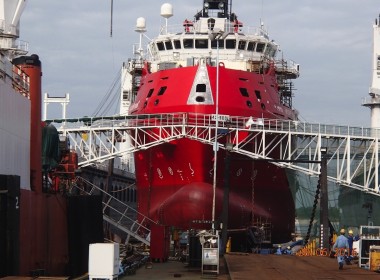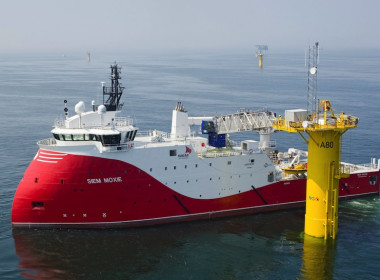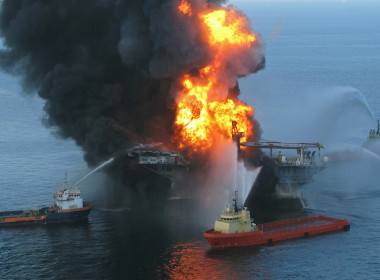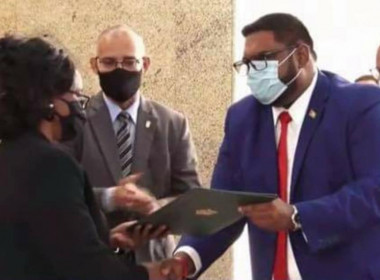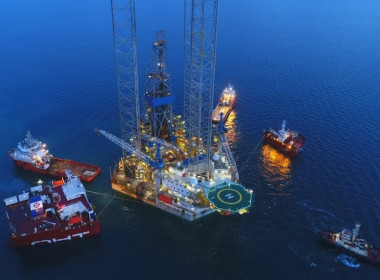COLUMN | Gaddafi’s crooked rules leave toxic legacy: African ferry scam, Libya looted, ENI investing, divisions unhealed [Offshore Accounts]

Last week, when we looked at the parlous state of governance and government in Africa’s major oil and gas producers, we briefly touched upon the wretched condition of Libya. Although the country produces around 1.2 million barrels of oil per day, it remains extremely unstable, being divided into two zones. One zone is controlled by the ironically named Government of National Unity (GNU) in Tripoli, which is recognised by the United Nations and is led by interim Prime Minister Abdulhamid Dbeibah. The GNU is supported by Turkey and Qatar.
The other zone is the so-called Libyan National Army (LNA) and is controlled by Khalifa Haftar, an ageing Libyan field marshal usually dubbed a warlord or a strongman. Haftar is backed by the Egyptians, the UAE, and Russia. He spent almost 20 years living in the USA and has apparently gained American citizenship, although a lawsuit there has now opened him up to civil claims for damages for alleged war crimes in Libya. His family therefore has apparently been selling their American property to prevent it being seized if the claim is successful, according to Middle East Eye last year.
Moscow’s weakness and Wagner’s losses may provide opportunity
Moscow sent several thousand fighters from the supposedly private military contractor the Wagner Group and other Syrian mercenaries to Libya in late 2019 to help Field Marshal Haftar launch what was ultimately an unsuccessful offensive against the GNU after six years of civil war. The LNA attack was repelled and the LNA withdrew to bases in the east and south of Libya. Finally, in 2020, a ceasefire was agreed.
After the disastrous Russian invasion of Ukraine last year, the Russians and some of the Syrians began to be withdrawn in April 2022, according to the Financial Times. Russia’s failure in Ukraine and the massive casualties suffered by the Wagner Group in its assault on the Ukrainian city of Bakhmut mean it simply doesn’t have the resources to provide meaningful support to Haftar in Libya anymore, just as it struggles to act as a peacekeeper in Nagorno-Karabakh between Azerbaijan and Armenia.
That reality has strengthened the possibility of the Libyan ceasefire becoming a more permanent peace and nationwide elections being held to elect one government for the whole country. Libya’s bloody civil unrest stems from the fall of the country’s long standing dictator, Colonel Muammar Gaddafi. Gaddafi ruled Libya from 1969, when he seized power in a bloodless coup against the king, to October 2011, when he was dragged from a drainage ditch by rebels near the town of Sirte and stabbed then shot during the Arab Spring.
Gaddafi’s toxic legacy
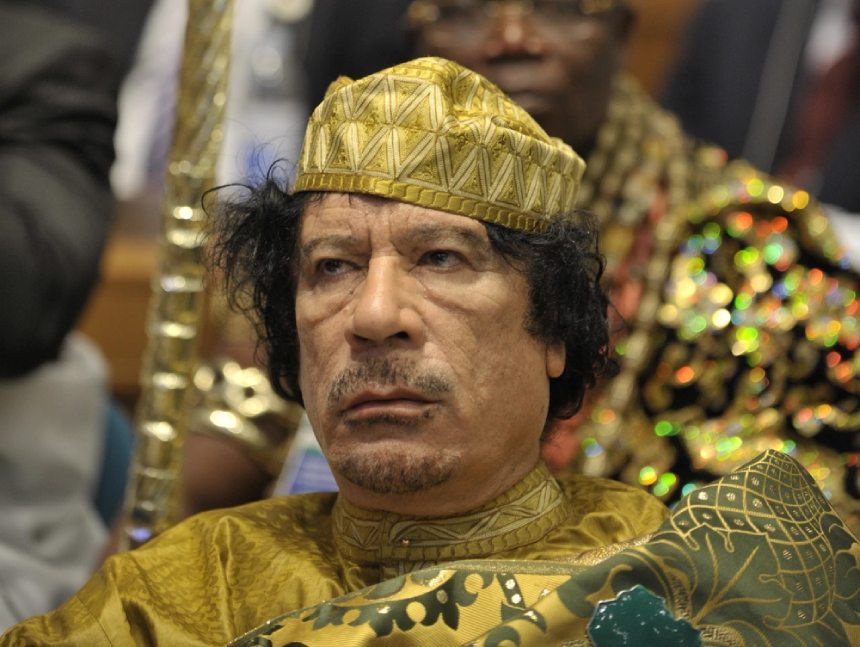
Libya should be a major energy producer, but years of western sanctions on the country when it was ruled by Gaddafi mean that it was starved of investment in the 1990s and early 2000s. The two rounds of civil war in the 2010s deterred many foreign investors, as oil production was shut in when the country’s export infrastructure was blockaded by various armed groups in 2011 and again in 2014.
Gaddafi had been accused of supporting terrorist attacks on western targets, including the bombing of a nightclub in Berlin in 1986 that left two American soldiers and one civilian dead and the notorious bombing of a Pan Am 747 jumbo jet over the Scottish town of Lockerbie in 1988, killing all 259 people on board and another 11 who were on the ground. The American government then passed the Iran and Libya Sanctions Act, which imposed economic sanctions on firms doing business with those states that were deemed sponsors of terrorism.
Sanctions were eventually lifted after the Libyan dictator promised to renounce weapons of mass destruction in 2004. Gaddafi had been shocked by the American invasion of Iraq and initiated dialogue with the American government three days after defeated Iraqi dictator Saddam Hussein was pulled from his underground hiding hole near Tikrit in the north of Iraq in December 2003.
Gadadafi hoped that reconciliation with the west would save him from the fate that befell Saddam, who was executed after he was unseated from power. He immediately began to court western oil companies again and in 2007, BP announced a US$900 million exploration programme in the country, enthusiastically announced by then British prime minister Tony Blair.
Unfortunately, an uprising began against Gaddafi in the eastern city of Benghazi in February 2011, leading to clashes with security forces, which the Libyan president threatened to put down with extreme violence, and then to NATO involvement with airstrikes to prevent Gaddafi fulfilling his pledge to kill all the rebels.
Gaddafi had set up a Libyan sovereign wealth fund, which held assets valued at over US$60 billion at the end of 2010. However, the decision by Gaddafi to use violence to put down the revolt led to the country’s overseas funds being frozen. The ensuing chaos over who was actually running Libya after his death spilled over into chaos over who controlled the billions in the fund, which remains frozen to this day. Efforts to recover the wealth plundered by him, his family, and their cronies stalled as different factions fought, both literally and in various courts.
So, Libya owns billions in overseas assets with which it can do nothing.
Gaddafi’s fall, rather like the fall of Saddam Hussein in Iraq in 2003, did not bring about a peaceful and harmonious Libya. Instead, the country was riven by conflicts between different armed militias and descended into a second civil war, which lasted from 2014 until the ceasefire of 2020. During the civil wars, BP suspended operations but announced that it was returning in 2022.
Oil revenues squandered on bombs – and Beyoncé!
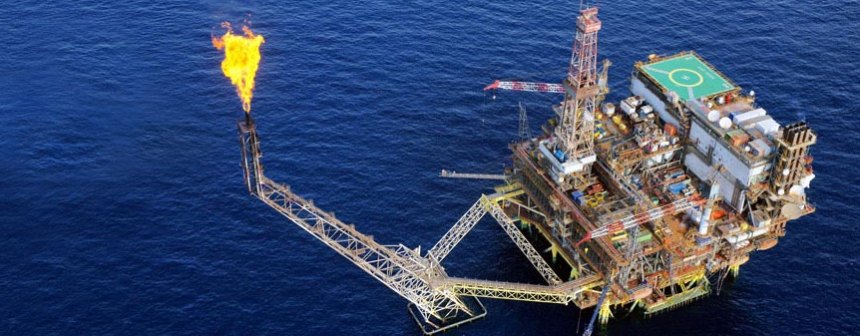
After Gaddafi seized power in 1969, his first major policy had been to demand that a higher share of Libyan oil assets were owned by the government. Libya became the first developing country to secure a majority share of the revenues from its own oil production. However, rather then ushering in an era of consultative democracy as he had promised in his Green Book of political philosophy, Gaddafi created a ruthless police state that imprisoned and murdered his enemies at home and abroad.
European oil companies could still invest there, however, and Total and ENI developed two offshore fields in joint ventures with the Libyan state oil company, Al Jurf and Mellitah, respectively. Rather than investing in education, healthcare, and infrastructure, Gaddafi spent the proceeds of 40 years of oil production on vanity projects and luxury for his family. American pop singer Beyoncé Knowles even gave a private concert on New Year’s Eve for Gaddafi’s son Hannibal in 2009, performing five songs at a club on the Caribbean island of St Barts. She charged US$2 million for the privilege, despite the fact that Hannibal had been accused of beating his wife at Claridge’s Hotel in London and abusing servants at another hotel in Geneva, which resulted in the Libyan government detaining two Swiss citizens in retaliation. He is now in detention in Beirut and his wife lives in Damascus.
ENI investment provides a boost
The ceasefire and the surge in gas prices in the aftermath of the Russian invasion of Ukraine have finally led to more confidence in Libya’s oil and gas sectors. ENI announced earlier this year that it would push ahead with the Structures A&E development offshore Libya to develop gas for the country’s gas-fired power stations and for export to Europe via pipeline. The US$8 billion project is scheduled to come into production in 2026 in partnership with the National Oil Corporation of Libya.
Output is estimated at between 750 million and 800 million cubic feet (19.8 million to 22.6 million cubic metres) per day. The Structures A&E development brings to production two fields in Libya’s offshore contract area D. Two new platforms will be installed and the gas will be processed on the existing Mellitah Complex. ENI’s COO for Natural Resources has emphasised its value as part of the “south-north corridor” from Africa to Europe.
“We do not think that Russian gas will ever [again] be an option,” ENI’s Guido Brusco told Upstream. “Clearly, (liquefied natural gas) and the south-north corridor will be the main source of gas supply for Europe.
The project includes a carbon capture and storage facility at Mellitah, Upstream reported. Mr Brusco said this facility should be “up and running” in 2027.
The ferry scam
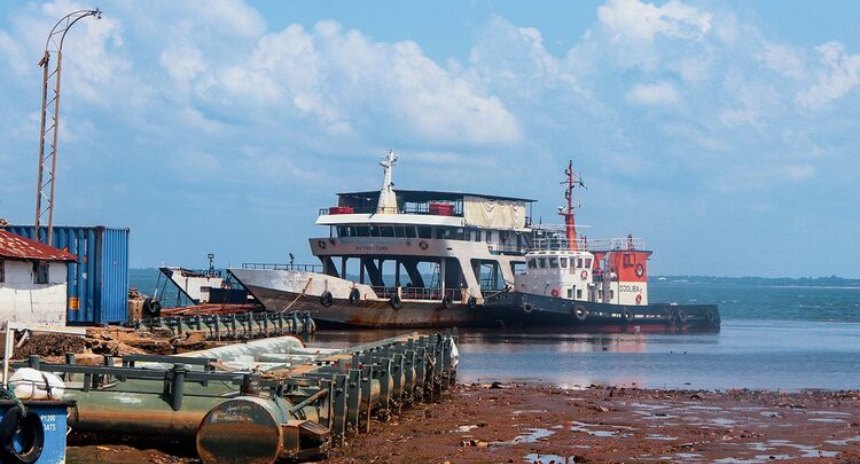
There is more than 3,800 kilometres between Libya’s dusty, desert capital Tripoli and the lush, green tropical vegetation of Sierra Leone’s capital Freetown, set on a mountainous peninsular on the west African coast. A recent report by the Organized Crime and Corruption Reporting Project (OCCRP) highlights the long-term consequences of Libya’s decades of mismanagement and corruption under Gaddafi, just one of many blatant scams and crooked deals during his long rule.
Freetown’s location on the small and mountainous peninsular means that Sierra Leone’s only international airport was built on the mainland. In 2006, Gaddafi announced he would create a Libyan-owned ferry line to provide transport between Freetown and the mainland. Unfortunately, the plan was “undermined by nepotism and corruption,” according to OCCRP’s investigative team, and the civil wars that followed Gaddafi’s death meant that nobody has ever been held to account for the crookery.
OCCRP found that a Libyan state investment fund allocated US$4 million to buy a new ferry for Freetown, but Gaddafi’s brother-in-law, Abdusalam Abulghasem Abughila, seems to have siphoned off US$1.4 million and used the rest to buy an old ferry in poor condition.
A joint venture between Mr Abughila and the Libyan government was supposed to purchase the ferry, while the Libyan state would own it, but he allegedly had the money sent to his personal bank account and bought the boat through his Panamanian offshore company instead. Separately, in a different deal, Abughila is accused of failing to repay a US$7 million loan from a Libyan state fund.
Efforts to reclaim the lost ferry funds have been stymied by the chaos surrounding Libya’s civil war and factional disagreements over who controls Libyan state investments.
Conclusions
It has taken a decade for fragile peace to return to Libya. Bad government creates a legacy of theft and corruption, and this legacy takes decades to resolve. Libya is a case study in how a megalomaniacal leader can ruin a country. The people of the country suffered for over 40 years of Gaddafi’s misrule, then they suffered a decade of war.
Let’s hope stability can finally be achieved and the oil and gas riches benefit the whole nation – not just consultancies, pop stars, and the high life of the ruling family.
Background Reading
Read the McKinsey Quarterly’s 2010 interview with Colonel Gaddafi’s chairman of the Libyan National Oil Corporation. After the lifting of American sanctions on Libya, McKinsey was aggressive in its pursuit of high-cost contracts to deliver blueprints for a new Libya to Gaddafi’s son Saif Al-Islam. The blueprints, of course, were without any changes to the brutal structures that kept Gaddafi in power, oppressed the local population, and allowed him and his family to plunder state coffers and kill their enemies with impunity.
The BBC’s excellent summary of the remarkable life and violent fall of Colonel Gaddafi is here.
Wikipedia has the full details of the death of the Libya dictator here.
The Council for Foreign Relations has an excellent who’s who guide to the Libyan civil war.
The Guardian’s excellent guide to when the Libyan Investment Authority placed its funds is here.
Read OCCRP’s excellent full report on the Sierra Leone ferry scandal and its report on the divisions and chaos within the Libyan Investment Authority here.


